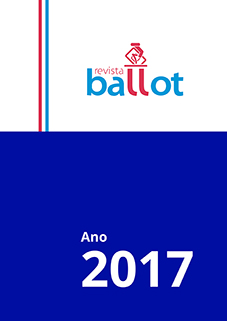Abstract
Between Electoral and Environmental Rights there is a legal connection as procedures adopted by one, interfere in the competence of the other. Electoral Law is the branch of legal science that regulates the interactions of political rights and the electoral process, aiming at the choice of representatives for the occupation of elective positions, including electoral systems and their legislation. However, during the election campaign, the candidate is submitted to a series of movements protected by electoral legislation, which puts at risk the object of study of another legal science, that is, of Environmental Law. The problem is that some conduits that go into the field of Environmental Law have legal certainty in the electoral legislation. It happens that the competence to investigate, prosecute and judge some environmental crimes committed during the electoral process rests with the Electoral Justice, simply because the conduct is intrinsically related to the election period, generating a conflict of competence with Environmental Law. This, in tum, through the environmental control agencies, which have greater capacity to deal properly with the situation, since the environment is their object of study. It is worth noting that this practice does not achieve as much efficiency as if these bodies worked together, given that the Federal Constitution imposes common competence on all political entities and institutions, that is, the protection and fight against pollution. Therefore, the objective of the present work is to analyze and discuss the competence to deal with electoral pollution and the need for an integrated work of the Electoral Justice with the environmental defense organs, in order to preserve the ecologically balanced environment.Os Direitos Autorais dos trabalhos publicados na revista BALLOT continuam pertencendo aos seus autores, que autorizam, ao inscrever-se no processo de submissão, a divulgação do seu conteúdo nesta plataforma para o acesso livre pela internet, devendo sempre ser citada a fonte. Pessoas interessadas em reproduzir parcialmente os artigos desta revista (partes do texto que excedam a 500 palavras, tabelas e ilustrações) deverão ter permissão escrita do(s) autor (es).
A Revista Ballot obedece aos termos da licença Creative Commons 4.0 (http://creativecommons.org/licenses/by-nc-nd/4.0/), atribuição não comercial e sem derivações, em consonância com a legislação autoral brasileira, Lei 9.610/98.

Este trabalho está licenciado com uma Licença Creative Commons - Atribuição-NãoComercial-SemDerivações 4.0 Internacional.
Downloads
Download data is not yet available.

